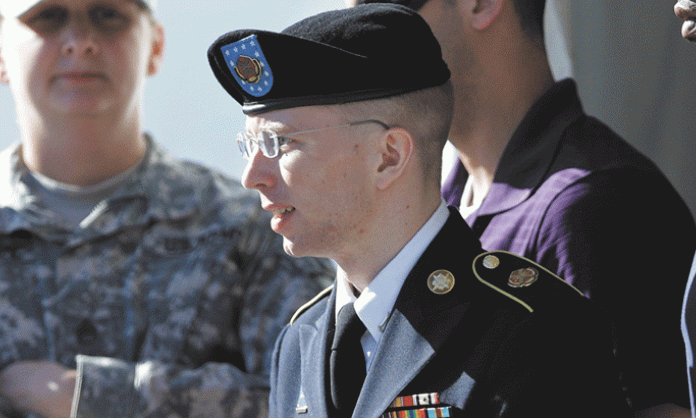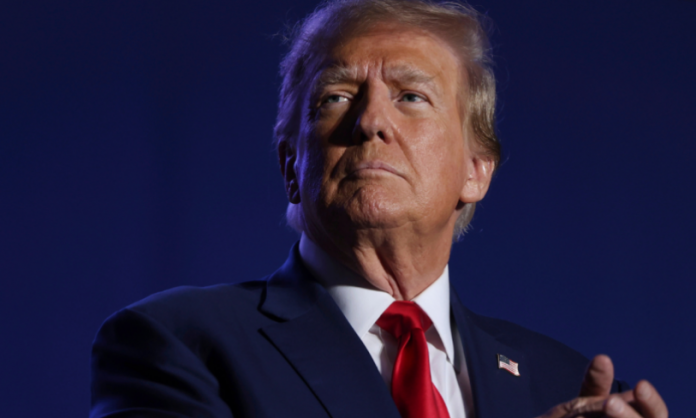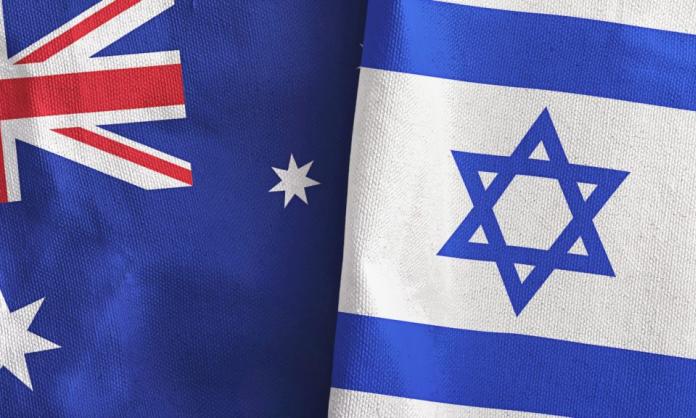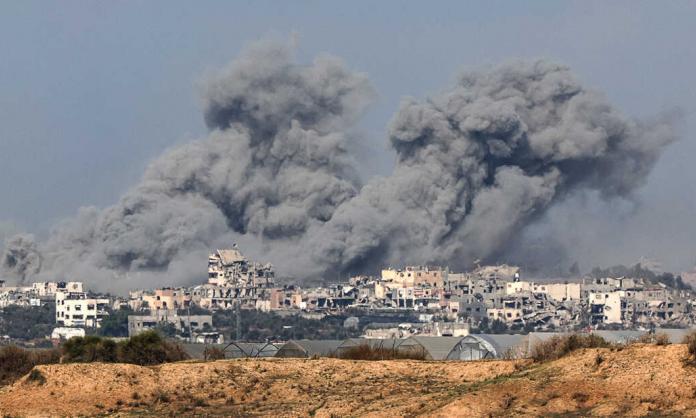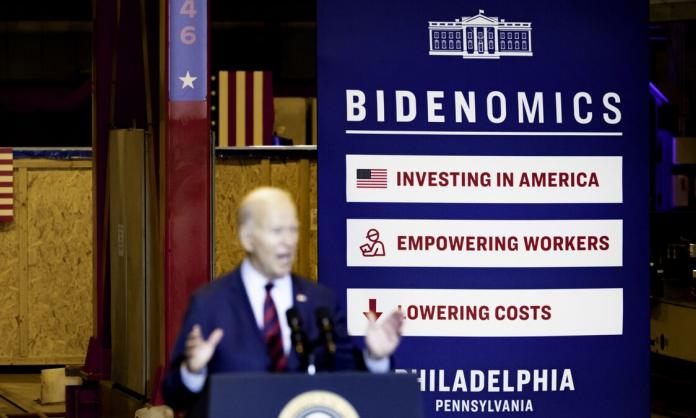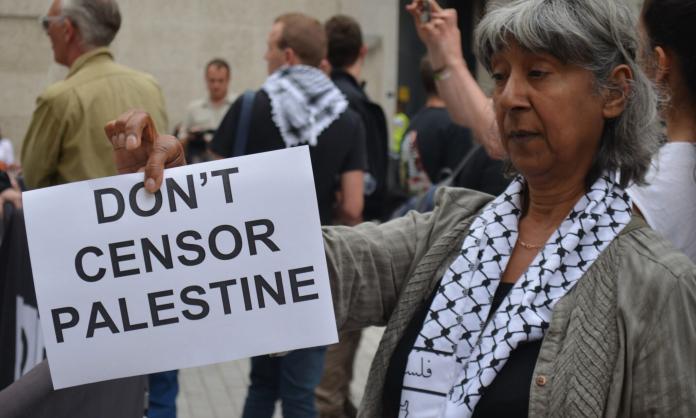The court martial of Pfc Bradley Manning opened on 3 June and is expected to last 12 weeks.
The courageous US soldier leaked a large trove of classified material documenting US war crimes in Afghanistan and Iraq, diplomatic cables exposing Washington’s machinations in the Middle East and elsewhere and other material.
At a previous hearing, Manning admitted that he was the source of these leaks. As a result, he could be sentenced to 20 years in military prison.
Manning denied that he was guilty of the most serious charges of “aiding the enemy” and “endangering US forces”, under which he could face the death penalty or life in prison. The prosecutors say they will not seek the death penalty, but life in prison without the possibility of parole.
Not content with inflicting a 20-year sentence on him for exposing the truth, the military prosecutors and behind them the Obama administration are hell bent on convicting him on the more serious charges.
The prosecution says it only needs to show that Manning was the source of the leaks, that they were then picked up and distributed to the press by WikiLeaks and Julian Assange, and that the “enemy” read them or saw them in the media.
Since Manning has already admitted to being the source, and WikiLeaks did distribute the material to the press, and many newspapers, TV outlets, social media, etc. around the world did carry them, and since it is quite likely that the “enemy” did see them, the case is closed and Manning is guilty.
Problems for prosecution
The prosecution has some problems with its “reasoning”. One is: who exactly is “the enemy”? In Afghanistan and Iraq, all who resist the US occupation are “the enemy”. And many other citizens who are not combatants are also so considered.
The prosecutors at Manning’s trial got around the difficulty of having so many “enemies” by claiming they were only considering Osama bin Laden and Al-Qaeda as having read the material Manning was the source of. So the linkage becomes: Manning, Julian Assange, the New York Times and hundreds of other media outlets and Osama bin Laden. All in this chain are guilty.
That presents another problem for the prosecution. They want to tie in WikiLeaks, but they want to let the New York Times off the hook, at least as far as the guilty verdict is concerned. (However, one aim of the show trial is to frighten the media away from making such material public.) Also, they can’t indict much of the world’s press without looking foolish.
The military prosecutor kept pounding away at WikiLeaks in his opening statement.
Julian Assange and the WikiLeaks organisation are the targets of the court martial in addition to Bradley Manning.
This has been true from the beginning, ever since Manning was arrested over three years ago. It explains why it has taken so long to bring him to trial.
Attempt to break him
All this time, the military has sought to break Manning, to get him to testify that Assange was his “co-conspirator”.
After his arrest in May 2010, Manning was put in a stockade in Kuwait, where he was subjected to being observed at all times including while using the toilet, deprived of sleep, forced to stand naked before other soldiers including females and similar acts of cruelty.
On 29 July of that year, he was transferred to the prison at the Marine base in Quantico, Virginia, and classified as a “maximum custody detainee.”
There he was placed in solitary confinement in a windowless cell 1.8 by 3.6 metres containing a bed, a sink and a toilet. Guards checked on him every five minutes. He was allowed one hour each day to walk outside his cell, but not allowed to exercise while in his cell, with lights on 24 hours a day.
He was not allowed to sleep between 5 a.m. and 8 p.m., and if he dozed off, he was made to stand up. He was denied sheets and a pillow, and his clothes were removed except for underwear. Later his underwear was also taken.
Guards taunted him, giving him orders such as to “turn left, don’t turn left”, and berated him for such things as replying to questions with “yes” instead of “aye, aye, sir.”
As news of his treatment began to come out, voices began to be raised internationally. Juan Mendez, a United Nations special rapporteur on torture, wrote that Manning’s treatment was “cruel, unusual and degrading”.
In January 2011, Amnesty International asked the British government to intervene, which it did not. In March 2011, State Department spokesman Philip Crowley criticised Manning’s treatment and was forced to resign two days later.
In early April of that year, 295 academics (most of them US legal scholars) signed a letter arguing that Manning’s treatment was in violation of the US Constitution.
The Pentagon finally relented, and on 20 April transferred Manning to a medium-security prison, where he was placed in a larger cell with a window and a normal mattress with sheets and a pillow. He was then allowed to mingle with other prisoners, wear clothes and keep personal objects in his cell.
Vengeance
They had failed to break him. They failed to get him to testify against Julian Assange with promises of a lighter sentence and better conditions. That is one reason they are going for the maximum sentence – vengeance. The other reason they seek harsh punishment is that while he has admitted to being the source of the leaks, he maintains that he was correct to do so, to shed some light on the ugly truth of the US wars. Their major objective is to terrorise others who might be whistleblowers.
Bradley Manning is a true hero, a person of conscience.
There are other things to note about this court martial. One is that it is conducted under military law, not US civil law. As a result, he will not be able to appeal his conviction to the US Supreme Court.
Another is that the public will be kept in the dark about much of the trial. The military judge has already ruled that 24 prosecution witnesses will testify in secret and that evidence labelled “classified” will also be kept secret. Of course, this is being done to avoid “aiding the enemy” and “harming US soldiers”. To add to the Kafkaesque flavour of this madness, those documents already revealed to the world by WikiLeaks that are introduced at the trial will be introduced in secret, since they remain “classified”.
What the judge finally decides will be influenced by the support Manning receives in the US and the world.




